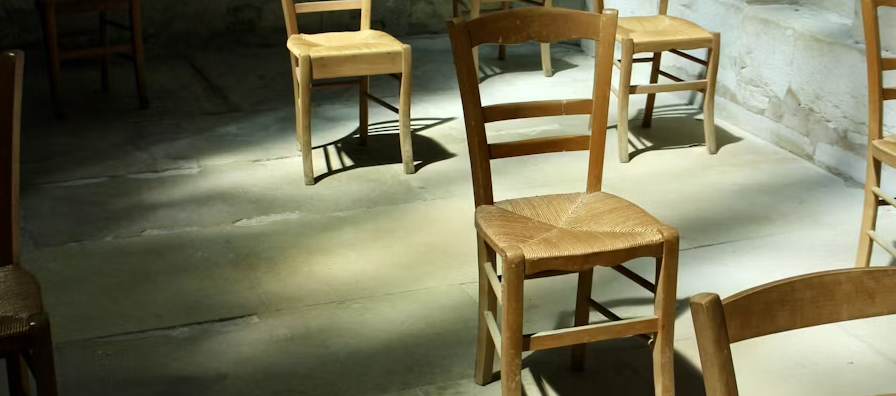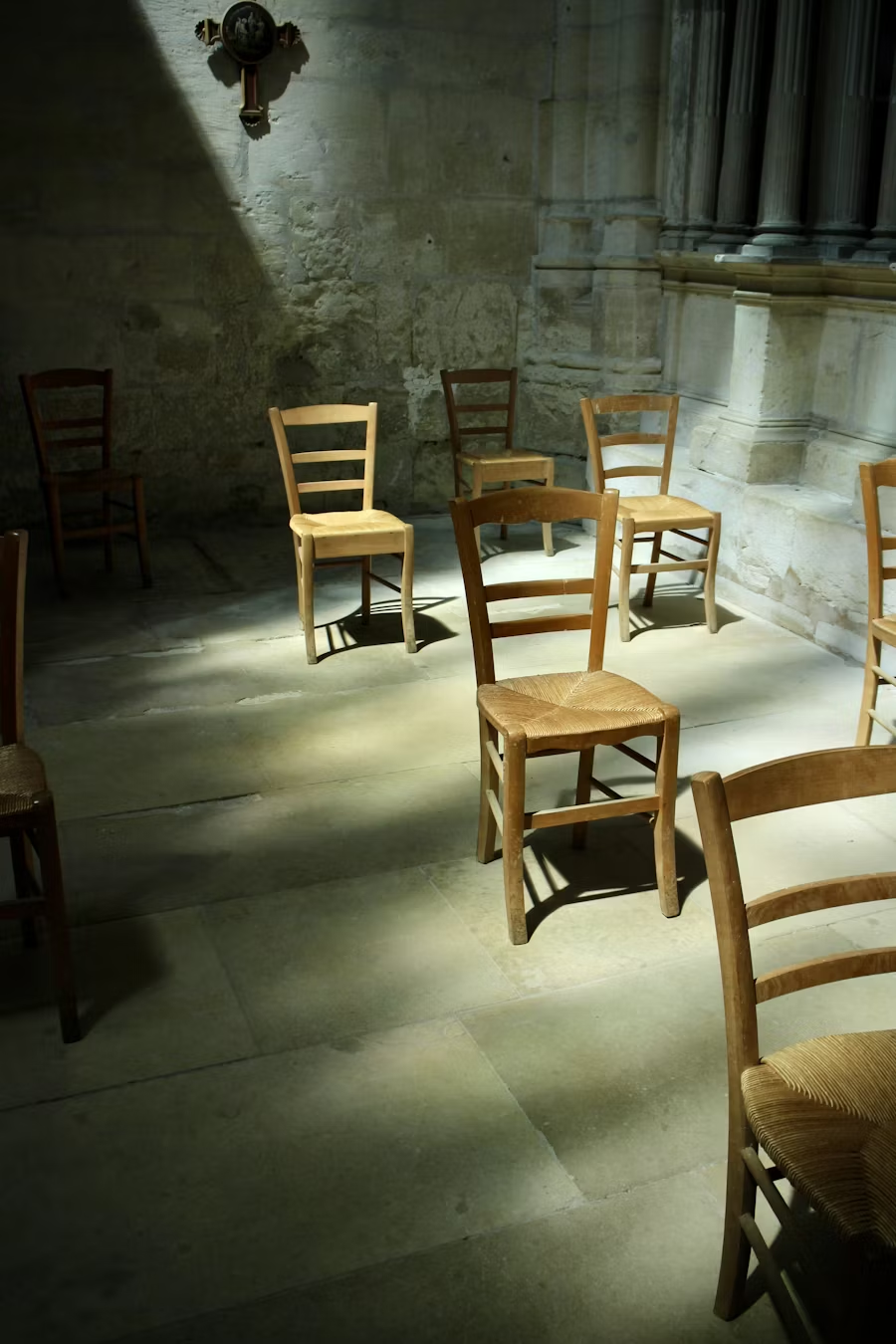
The Spiritual Poverty of the West
Can African Christianity illuminate what the West has lost?
Understanding the impact of the system that has come to dominate the West is a key part of T4CG’s work says Jenny Sinclair. This system has profound effects on the way we experience life, our economy, our relationships, our churches. The Leaving Egypt podcast is one of the places we explore this theme. In one episode, a conversation with Harvey Kwiyani helped us see Western culture through the eyes of a Malawian Christian. This revealed important truths that could help us understand why things have gone so wrong, and which could help us grasp what it might take to put things right.
As a boy of twelve in Malawi, Harvey Kwiyani* heard God’s call that he was to become a missionary in Europe. He didn’t even know where Europe was. But it happened and now, he is a missional leader and theologian living and working in the UK.
In our conversation Harvey refers to the legacy of the Enlightenment, where Western cultures shifted their focus from the worship of God to the worship of the individual. This led to a culture of self, derived from the false anthropology of individualism, where the human being is conceptualised as “the unencumbered self”, free from constraint. How different this is from God’s true anthropology, where we are regarded as relational beings made in His image. This truth is reflected in the African Ubuntu way of seeing the world, simply defined as “I am because we are.”
We explore together the difference between an Ubuntu-shaped missiology and an individualistic-shaped missiology. Harvey says:
“The Enlightenment is centred on human capacity – when you elevate the individual and the individual becomes the centre of the world. But for people in sub-Saharan Africa, our operating philosophy that shapes our worldview is simply this, that “I am because we are”, that we cannot be fully human in isolation. That, to be human, you’re required to be in community with others. So individualism is discouraged, is frowned upon. There’s always harmony and exchange between the individual and the community.”
We reflect on the impact of the loss of this natural awareness in Western Christianity. Harvey has been working with many Christian communities in the UK, Europe and the US, and he has been shocked at “the inability to expect God to show up in day-to-day life.” He concedes that “at least some will expect God to show up on Sunday in church, but that’s also rare. Most people do not have space in their lives that God can show up into.” He describes this as “functional atheism.. where many, many people who say they are Christians.. say they follow Christ, but live as if God does not exist.”
By contrast, the Ubuntu mindset is anchored in a fundamental awareness that God is actually among us. He says this way of being is “grounded in a belief that the spirit world is watching us at all times.” Connecting this to St Paul’s instruction, ‘do everything as if you’re doing it unto the Lord’, Harvey says that in Ubuntu communities, their “interpersonal relations will be really grounded in the belief that they are serving the spirit world as they serve one another.” The reality is that this has been their formation, passed down over generations. Inheriting this natural way of things, “people have learned to listen to the Spirit.”
I was struck by the similarities between this Ubuntu way of being and the new but ancient method of Conversation in the Spirit. This is at the heart of synodality (walking with each other and with the Holy Spirit) that we discussed in an episode with Avril Bagient, a practice Pope Francis is trying to reintroduce across the Catholic Church.
We can see the stark contrast between Ubuntu and individualism, not only in terms of how we relate to God, and how we relate to each other, but also in terms of our economic systems. From a Catholic Social Teaching perspective, we are called to interrogate what economic systems are doing to the human person. The Western neoliberal economic model, despite being a powerful engine of wealth creation, also – wherever it is unconstrained – commodifies, dehumanises, degrades, exploits, extracts, and even dissolves relationships.
By contrast, in economic terms, Harvey adds, “Ubuntu offers a different way to talk and think. One of the pillars is human generosity. The most powerful person in the community is the one who gives the most, not the one who hoards the most. It helps the community thrive together. There is nobody poor because they are all sharing resources. In the context of Ubuntu you only thrive if your neighbours are thriving.”
I ask him about the risk for African nations who want to import a Western economic model. While they have every right to aspire to prosperity, the question is how can that be achieved without wrecking their culture. Because in importing our operating system, which after all comes from the same post-Enlightenment root as the secularising, unravelling spirit that is now afflicting the West, it is likely that they will inadvertently also import a culture that damages their relationships too. Their Ubuntu culture will be subordinated, along with their natural way of understanding God, and replaced with Pharaonic forms of captivity so familiar to us in the West: managerial techniques, all sorts of dehumanising technocratic systems, commodification and so on. We don’t want what has happened to us to happen to them. There is a sense of a need to warn them to be careful what they wish for.
Harvey agrees: “Yes, that’s profound. To some extent, the ship has sailed. European colonisation of Africa changed everything. When the African nation states emerged after that era, they were almost by default required to follow Western economic systems. This accounts for the chaos in the Congo and in South Africa and many other places. My hope is that people can resist. But it will take a lot. We’re seeing something happen in West Africa. There are people saying ‘We are going to be our own people. We are going to manage our own resources.’ But it will not be easy.”
This brought me back to the West and to the people who have borne the brunt of these inhuman systems. What can be done at this late hour? Pope Francis has repeatedly called Christians to join in solidarity with poor communities: in fact he says the Church needs to be evangelised by the poor. Why does he say this? Because he senses that, having lost its way, itself being so afflicted by our dysfunctional operating system, the Church, having become more middle class, has become estranged from poor communities. The Church needs to be blessed by what the poor can bring: an instinctive awareness, borne of poverty, of the need for others and for the divine. This is at the heart of God’s special love for the poor.
Harvey concurs, saying that “one of the things I see about the Western church, is the church’s inability to work with poor people.” He spoke of people he comes across evangelising in poor areas: “give them three years, they’ll be out of there. They will relocate to somewhere in the suburbs because they just cannot figure out how best to follow Christ among poor people.” He added that, “part of the reason we’ve seen revivals over the past few decades in Africa is really just the poverty.”.
What I think Pope Francis is getting at is that someone who is poor has retained a sense of their need for others and for God that the affluent and the busy so easily lose. This raises the proposition that poor people may be less likely to have been captured by the “malign culture” as Francis describes it. He is suggesting that despite everything, there is still a residue of people in the West, who, by virtue of their poverty, may have retained a pre-modern sense for the need for God. They have not completely lost that kingdom instinct of needing others. We can sense this when Jesus says “Blessed are you who are poor, for yours is the kingdom of God” (Luke 6:20-21).
In this season of decline experienced by many of our Western churches, perhaps God could be doing something profound. Could He be humbling the Church so that in its poverty it might sense a calling to reconnect with the poor? For those churches able to grasp this, who are able to build a common good with their neighbours trapped in poverty, this could be an inflection point.
Jenny Sinclair
Founder Director, Together for the Common Good
*Dr Harvey Kwiyani works for the Church Mission Society (CMS) in Oxford, UK, where he leads the ACTS ELEVEN Project, a new initiative in the form of a study centre for global witness and human migration. He also leads a Masters programme in African Christianity. You can find him at his Substack, Global Witness, Globally Reimagined
This article features episodes #05 and #20 from our Leaving Egypt podcast. You can find the full archive here
This story is featured in the Michaelmas 2024 edition of the T4CG Newsletter.

